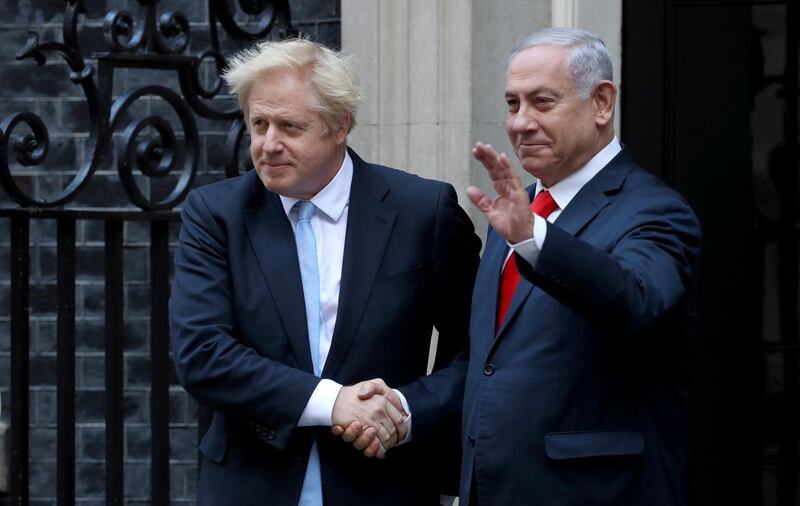British Prime Minister Boris Johnson, writing in an Israeli newspaper, urged Israel not to proceed with its West Bank annexation plans and to return to negotiations.
In an article published in Yedioth Ahronoth on Wednesday, the day touted by Israeli Prime Minister Benjamin Netanyahu as the start date for formal annexation, Mr Johnson called the possible move a "violation of international law".
"I followed with great sadness the proposals for annexing Palestinian territory," Mr Johnson wrote.
"I hope from the bottom of my heart that the annexation will not happen.
"Israel's enemies will take advantage of this situation and use it against anyone who longs for progress in the Middle East."
He also wrote of his continued support and warm feelings towards Israel.
The British prime minister said the UK would not recognise Israel's planned annexation of the West Bank or any changes to the internationally recognised 1967 borders between Israel and the land Palestinians claim for a future separate state.

Since the 1967 war, Israelis have militarily occupied the West Bank, building settlements for Jewish citizens. It is these settlements that Mr Netanyahu has vowed to formally annex.
Britain as well as other European nations and the EU have decried Israel's plans for annexation. But there remain questions over how Western nations would respond to the move.
Britain has indicated that it would not seek to impose sanctions or back any policy of divestment against Israel.
Despite Mr Netanyahu's repeated promises to move ahead with the plans for de-jure annexation of parts of the West Bank, he is facing mounting obstacles to the initiative both at home and abroad.
There are signs Mr Netanyahu's coalition partner, Benny Gantz, has deep reservations over annexation, and the defence minister, who is also Israel's alternate prime minister, has called for delays so that the country can deal with the coronavirus pandemic.
At the same time, the apparent likelihood of a defeat for US President Donald Trump in the November presidential election is also a consideration. Mr Trump, whose administration gave the green light to Israel’s designs on annexation, has fallen significantly behind in recent polls.
Mr Trump's rival, the former US vice president Joe Biden, has publicly spoken out against annexation.







